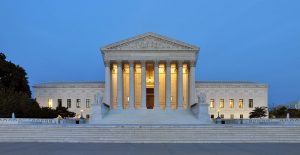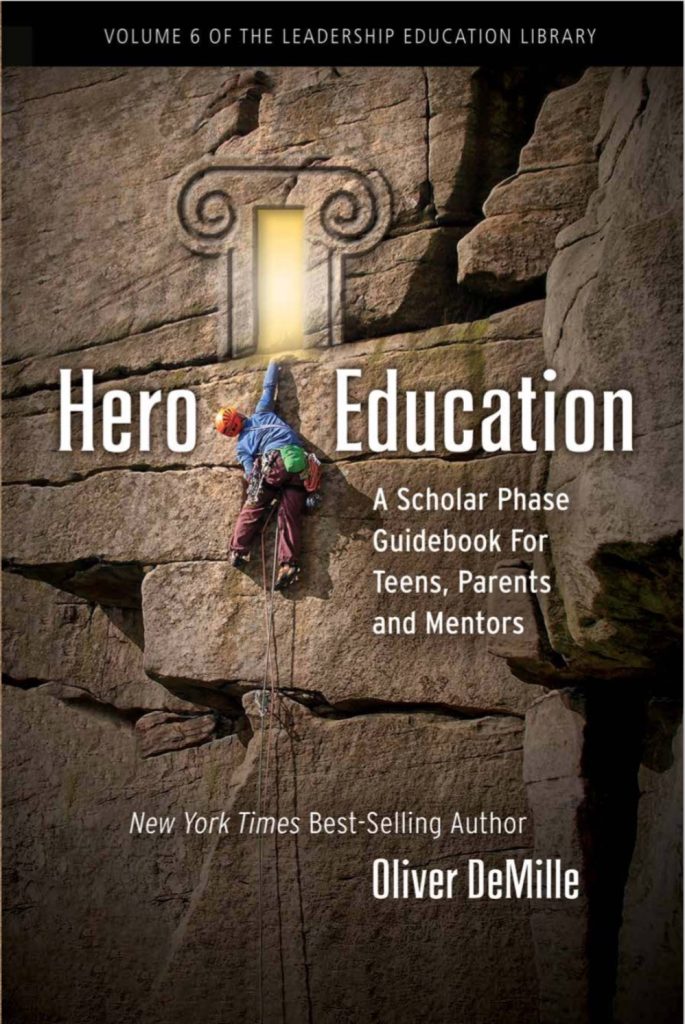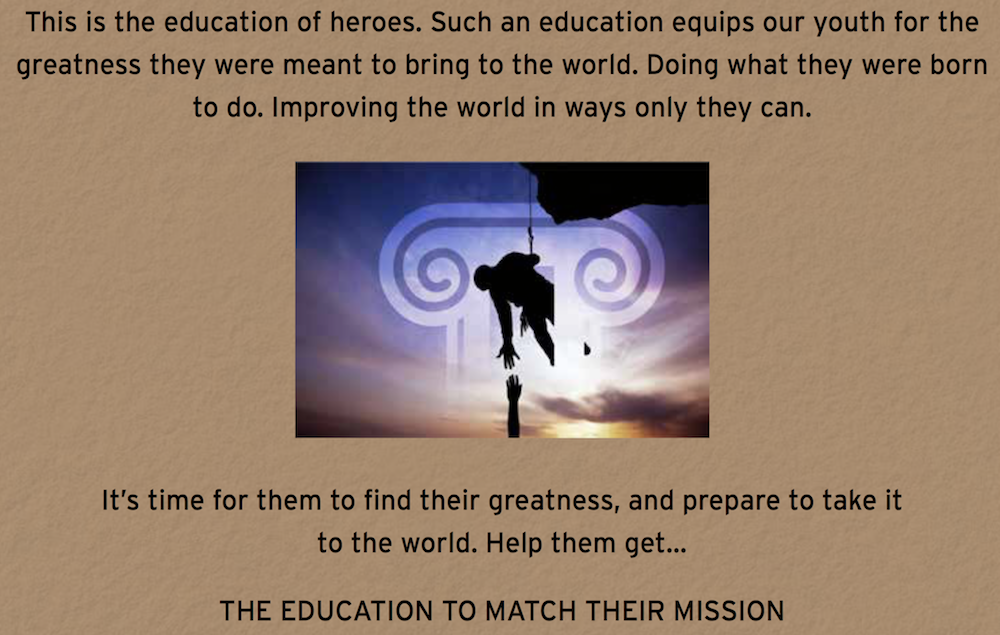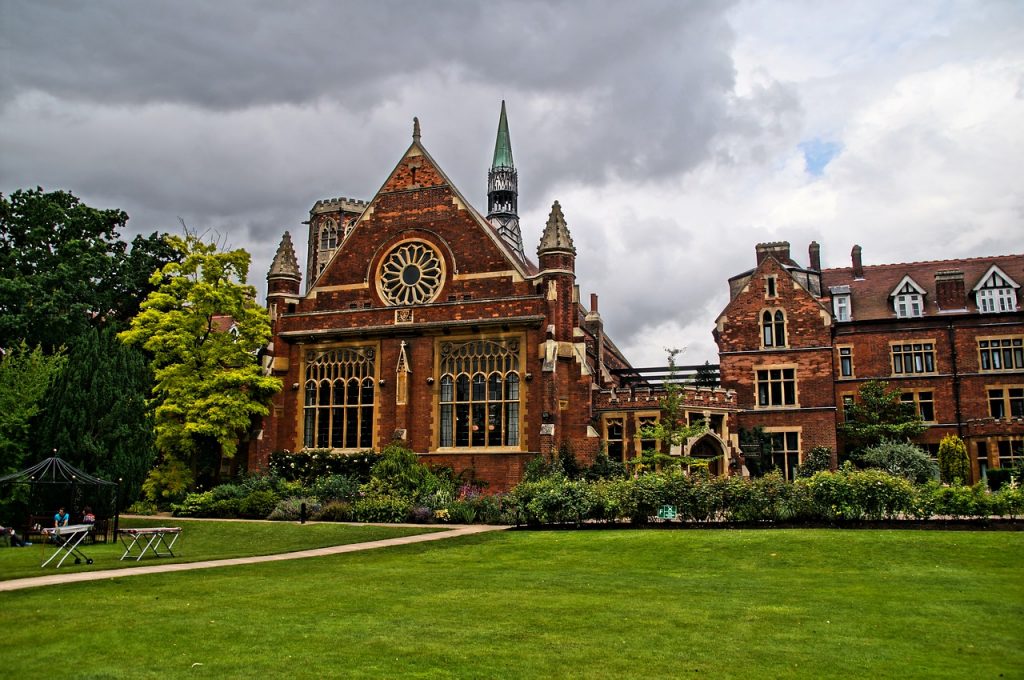The Jefferson-Madison Debates: The End of Elite Credibility?
January 31st, 2019 // 11:45 am @ Oliver DeMille

Thinking is Key
I recently read an excellent article that really gets to the heart of our new era—where elites in government, media, business and culture have lost much of their credibility, as the masses have lost trust in their motives and words. This is a a big shift. I don’t agree with everything in the article, but it really makes the reader think deeply about this truly important topic. It explains the Trump era, and how it is drastically changing our world, as well as anything I’ve read. This article is worth reading closely, and I hope you’ll really thinking about what it says. Here’s the link:
https://www.theguardian.com/news/2018/nov/29/why-we-stopped-trusting-elites-the-new-populism
Category : Blog &Citizenship &Community &Constitution &Culture &Current Events &Generations &Government &History &Independents &Information Age &Leadership &Liberty &Mission &Politics
The Jefferson-Madison Debates: Socialism in Our Time
January 2nd, 2019 // 8:43 pm @ Oliver DeMille
The Mantra of Today’s Media and Universities
“These were the pleasantest days of Sam’s life, these days in the woods, far from everywhere—no automobiles, no roads, no people, no noise, no school, no homework, no problems, except the problem of getting lost. And, of course, the problem of what to be when he grew up. Every boy has that problem.”
—Sam Beaver[i]
“And it was here that I learned the value
of economicness—which means saving.”
—Tucker Mouse[ii]
“…peace in our time.”[iii]
—Neville Chamberlain, 1938
I. The Two Drives: Strong vs. Weak
A century ago, and two centuries ago for that matter, the typical American judged himself according to a code of individual strength, in terms that might seem somewhat barbaric in current society. Today most people try to be more socialized; some would say more socially “acceptable”. Compliance is now largely considered a good thing—something our individualized American from the early 1900s would find objectionable.
The inner reality of many moderns is even more telling. A lot of people now judge themself not by strength, character, or individualistic achievement, but rather the exact opposite—how well they fit in with others. How popular they are. How closely they match the crowd. We are, by and large, supremely socialized now. Socialization has worked for at least two, going on three, generations.
Anyone not quite civilized in this respect, anyone who is still “rough around the edges,” or individualistic, doesn’t fit the mold very well. This is widely considered a serious fault. If you doubt how strong this hold is on most modern families and parents, try the following simple experiment: pull your children out of school and announce that you plan to homeschool, then keep track of how many people ask you “What about their academics?” versus “But what about their socialization?” The first list will likely be short, or non-existent, the second will be long. Indeed, without quite realizing it, our society has adopted socialization as arguably the highest purpose of our educational system. And even of parenting. Or, alternatively, try an even more challenging project: quit your job and start a business. See which people you know think you are courageous and strong for striking out on your own, versus those who consider your choice rash, reckless, even “crazy”.
These two drives—the one to stand apart, to excel as a unique individual, to be one’s true self, versus the other, to fit in, to be like everyone else, to be popular with peers, to be a “peer” at all—have long been at odds. Ironically, despite current popular views, history shows that the drive to stand out is the natural companion of progress, while a widespread drive to feel popular always accompanies societal decline.[iv]
Make no mistake, actual progress in a society is nearly always led by people making choices that don’t “fit in”, individuals who are hungry, driven, enterprising. Positive change in the world is an uphill slugfest, a challenging epic of work, overcoming roadblocks, and more work. It is seldom comfortable. Where the people are comfortable—in their job, career, or community—little leadership is at play. Leadership breeds discomfort, and thereby change.
If you are comfortable, you probably aren’t leading. (Nor are you, for that matter, likely to be experiencing effective leadership from anyone else.) Decline, on the other hand, is typically mired in comfort, until a major crisis or setback arises, when chaos and terror set in. But the path to such events is usually filled with what past generations could only describe as weak, though one still deals with the stresses of trying to meet the approval of others, punctuated with as much free-time entertainment as possible.
Philosophers and scholars have long been fascinated with the idea of “socialization”. It is at times the supreme goal of societies (“is the society savage or advanced?”, “let’s make sure they get socialized”), and on the other hand it typically coincides with growing weakness, mediocrity, sloth. Softness. Whining. Calls for more government help to get by. Ultimately, decline. For Aristotle, this division began with the difference between the community (a group of families, each choosing and acting as individual units, while generally coordinating and working together for common goals—always voluntarily) and the city (the “civis”, root of the word “civilization”, made up of many more people than a community, so many in fact that the most “efficient” way to govern them was for a few elites to rule things from the top down; for the few to tell the many how to live). This has ever been the great divide: bottom-up self rule by individuals,families, and communities, versus top-down rule by a group of elites, usually through government.
The first naturally adopts individualistic goals and mannerisms; the other flourishes as people put aside individualism and desire mainly to fit in. Elizabeth Bennet versus Caroline Bingley, to put a fine point on it. Colonel Brandon vs. Willoughby. It is the Ayn Rand hero versus today’s “acceptable” modern man or woman. John Adams considered this the great battle of humanity, and the choice each of us needs to make in life: either to serve, improve, and progress, or, alternatively, to spend our lives trying to impress others.[v]
The Talmudic tradition traces the history of this division to Abraham—the traveler and nomad, hearty and robust enough to survive in the harsh conditions of the desert and rock-laden Near Eastern mountains, protecting his herds, leading his soldiers as they fought bandits and avoided the control of petty princes in every city. The opposite of Abraham was Lot, and what happened to his once strong nomadic family when they settled into the city life characteristic of Sodom and Gomorrah. Note that his very name, Lot, has become a word meaning group, collective, batch, or bunch. Today’s synonyms of “lot” also include “assembly,” “throng”, “horde”, “swarm” and “mob”. The “lot” is socialized, and where this is true, socialism is usually on the rise.
Alternatively, the Teddy Roosevelt style individualists mentioned above, both men and women, were driven by progress. Specifically, the hard work of progress. For today’s “socialized” seeker of ease, in contrast, comfort rules. Safety. Being cared for. No wonder socialism is gaining popularity. Not surprisingly, under socialism, the biggest goal of youth education is socialization. Learning to follow the orders of superiors and officials. Showing up on time, getting in line, and giving rote answers—well memorized, and well groomed. Socialized. Manicured. Compliant. “Good” students and “good” employees in this regime obey their superiors, focus on scoring well on state-designed tests, and repeat. Whether in school, factory, or corporate high-rise, in the airport or online, the mold is cast—socialization all grown up.
II. Socialism’s Center
Today the biggest catalyst and supporter of spreading socialism is none other than higher education—the colleges and universities, aided and abetted by much of the media. This is ironic, given that universities and independent media were first invented to foment free thinking, individualistic pushback against aristocratic rule, to lead rebellion against elite domination and the stifling social pressure to always please the elites. To speak truth to power. The idea was that ideas, thinking, and knowledge would empower people against elite rule of any kind.
Nearly all of today’s campuses, in contrast, are both the incubators and lifeblood of the Socialist movement. Socialization is the prime rule. Combine this with a world where most parents believe that “each child must go to college”, and we have the recipe for a major societal revolution in the decades just ahead. Indeed, it is already happening.
As I wrote recently, while addressing another topic:
“On the political front, in the post Bernie Sanders era, many Millennials [born between 1984 and 2001] support government-mandated free college, free housing, a monthly wage for everyone whether or not they have a job, and the appeal of ‘socialism.’ Many even like the word or label of ‘socialism’, with over half of Millennials self-identifying as ‘socialist’.[vi]
“But, ironically, they have little appetite for the ‘struggle of the working class to create a socialist society.’ [vii] That’s too much work. And they certainly aren’t looking for ‘the long revolution’ to bring about socialism.[viii] They just want socialist programs handed to them by big government, without any personal struggle, sacrifice, or effort.[ix] Many Millennials seem to feel they ‘deserve’ such programs, without doing anything to earn them.”[x]
Comfort. Being taken care of. Staying in line. Not the struggle to accomplish or build. In a word: socialization.
This is largely the work of modern education, from elementary and high school to the colleges and universities, followed by the continuing adult “education” of mainstream media. Austrian economist Ludwig von Mises warned many years ago that this exact situation was coming.
As he put it: “The typical graduate of colleges and high schools very soon forgets most of the things he has learned. But there is one piece of indoctrination which makes a lasting impression on his mind, viz., the dogma of the irreversibility of the trend toward all-round planning and regimentation. He does not doubt the thesis that mankind will never return to capitalism, the dismal system of an age gone forever, and that the ‘wave of the future’ carries us toward the promised land of [socialism]. If he had any doubts, what he reads in newspapers and what he hears from the politicians would dispel them…. Thus the average man is predisposed in favor of socialism.”[xi]
Mises warned that college too often changes students, convinces them, frequently against the teachings of their parents and childhood communities, that experts are always right, or almost always right, and that government experts, those licensed or approved by the government, are especially right. A result of college is often the alteration of a young individualist who questions things, especially authority, to a socialized person who generally accepts almost everything an expert says—particularly if the expert leads with his/her prestigious or official credentials, or both.
Another result is the all-to-frequent habit of believing most of whatever is mainstream, without any independent, personal research on the topic. A kind of “educated” mythology has become part of our modern reality—created by formative years packed with a plethora of hours sitting passively in class, taking notes of what experts say, then memorizing and being tested, graded, and ranked on the basis of how well one agrees with the experts. Few individuals get out unscathed.
This weakening of the habit of independent thinking and speaking truth to power is one of the typical outcomes for many who finish college, Mises warned. For example: “A few years ago a House of Representatives subcommittee on publicity and propaganda in the executive departments, underthe chairmanship of Representative Forest A. Harness, investigated federal propaganda operations. On one occasion the committee had as a witness a government-employed doctor. When asked if his public speeches throughout the country presented both sides of the discussion touching compulsory national health insurance, this witness answered: ‘I don’t know what you mean by both sides.’”[xii]
Mises was not impressed. “This naïve answer” he noted, “throws light on the state of mind of people who proudly call themselves progressive intellectuals. They simply do not imagine that any argument could be advanced against the various schemes they are suggesting. As they see it, everybody, without asking questions, must support every project aiming at more and more government control of all aspects of the citizen’s life and conduct. They never try to refute the objections raised against their doctrines.”[xiii] They seldom show the other side, even in the halls of higher education. They prefer a populace, including the college-educated masses, who will listen, believe, and go about their work without much questioning.
“Many citizens hold educational institutions responsible for the spread of this bigotry”, Mises argued.[xiv] “They sharply criticize the way in which economics, philosophy, sociology, history and political science are taught at most American universities and colleges. They blame many teachers for indoctrinating their students with the ideas of all-round planning, socialism…. Some of those attacked try to deny any responsibility. Others, realizing the futility of this mode of defense, cry out about ‘persecution’ and infringement of ‘academic freedom.’”[xv]
Whether by denial or deflection, the universities usually manage to change the subject without ever answering the question: Why, in our time, do “liberal professors outnumber conservatives nearly 12-1”?[xvi] Why is only one side presented? Why aren’t all sides allowed the full light of day, and the students taught to compare, contrast, weigh, analyze, and work for their own conclusions? In short, why aren’t they taught how to think? Are these actually schools, or are they more like places of indoctrination?
Why do “39% of [the top] colleges have 0 Republican professors”?[xvii] This is the opposite of diversity, yet instead of considering this situation a glaring weakness, many schools seem proud of their status, of “drowning in blue”[xviii] and “Telling students what to think…not how to think”.[xix] As a researcher for the National Association of Scholars summarized a study of college faculties in 2016, “…78.2 percent of the academic departments in my sample [“51 of the 60 top-ranked liberal arts colleges”/universities] have either zero Republicans—or so few as to make no difference.”[xx]
If only those on the Left are allowed to teach our college students, who shows young people the other sides? Again, who teaches the students (and future or current voters) how to think, to consider different views and arguments, ponder and research, and develop their own conclusions? Who prepares them to think independently when they read or watch the news? Are they expected to treat the media like so many professors—and just accept what they are told? And why would any real teacher train students to “just accept and obey” in the first place, rather than consider, contrast, verify, and think?
Mises already provided the answer: “Yet what is unsatisfactory with the present-day academic conditions—not only in this country but in most foreign nations—is not the fact that many teachers are blindly committed to Veblenian,[xxi]Marxian and Keynesian fallacies, and try to convince their students that no tenable objections can be raised against what they call progressive policies. The mischief is rather to be seen in the fact that the statements of these teachers are not challenged by any criticism in the academic sphere. The pseudo-liberals monopolize the teaching jobs at many universities. Only men who agree with them are appointed as teachers and instructors of the social sciences, and only textbooks supporting their ideas are used. The essential question is not how to get rid of inept teachers and poor textbooks. It is how to give the students an opportunity to hear something about the ideas of economists rejecting the tenets of the interventionists, inflationists, Socialists….”[xxii] This is a very real dilemma, and the numbers are worse today than when Mises pointed them out.
III. What is Free Enterprise?
When Mises refers to “capitalism,” and “free enterprise,” he means something specific. What is it? The fact that so few people with long years of high school and college education, including graduate studies, can easily answer this question puts the quality of our educational systems in doubt. Here is the answer, in Mises’ typically Socratic way of asking questions:
“Do the American voters know that the unprecedented improvement in their standard of living that the last hundred years brought was the result of the steady rise in the per-head quota of capital invested?”[xxiii]
Stop here for a moment and be sure you clearly understand what he is saying. The American Dream, the rising standard of living that has become part of what most Americans consider a normal experience, at least until 2008, was based on freedom and entrepreneurship, but the key thing that makes it work is when freedom and entrepreneurship combine to increase the per-person amount of invested capital in the nation. When this level of available and utilized capital per person rises, the nation gets more prosperous. If it were ever to fall, most people would get much poorer. Quickly. It fell during the Great Depression, and during the crash of 2008-2011. Fortunately, it eventually bounced back—but only because changes were made to government policy that rolled back regulation and rebooted the levels of per-person capital invested in the economy. Mises’ next sentence continues this point:
“Do they realize that every measure leading to capital decumulation jeopardizes their prosperity? Are they aware of the conditions that make their wage rates tower above those of other countries?”[xxiv]
“What is needed is to make the importance of these problems understood by everybody. No party platform is to be considered as satisfactory that does not contain the following point: As the prosperity of the nation and height of wage rates depend on a continual increase in the capital invested in its plants, mines and farms, it is one of the foremost tasks of good government to remove all obstacles that hinder the accumulation and investment of new capital.”[xxv]
This is the key point, in a nutshell. If there is a continual increase in available capital,[xxvi] and effective entrepreneurs to employ it widely,[xxvii] the economy will grow, and if there is freedom, everyone will have the opportunity to benefit from the continual increase in available capital—in fact, their hard work and/or entrepreneurial success in such a system will further increase capital to the benefit of others. This leads to the growth and spread of wealth among the regular people. But when there is not a continual increase in capital along with freedom, then socialism—or some other form of top-down elite control—is at play, and the regular people get poorer and less powerful.
Again, few Americans today know this simple definition. Even fewer can immediately articulate it as the central economic reality of a growing versus declining economy. This is a failure at all levels of education, and an even more shameful reality in a society that spends so much time and money on higher education and media.
Those who claim to be socialists, or progressives or liberals, miss this point when they argue against profit. Mises put it succinctly: “The progressives consider profits as objectionable. The very existence of profits is in their eyes a proof that wage rates could be raised [by government force] without harm to anybody…”[xxviii]
But they “speak of profit without dealing with its corollary, loss. Profit and loss are the instruments by means of which the consumers keep a tight rein on all entrepreneurial activities. A profitable enterprise tends to expand, an unprofitable one tends to shrink.
“The elimination of profit renders production rigid and abolishes the consumers’ sovereignty. This will happen not because the enterprisers are mean and greedy, and lack these monkish virtues of self-sacrifice which the planners ascribe to all other people. In the absence of profits the entrepreneurs would not learn what the wants of the consumers are, and if they were to guess, they would not have the means to adjust and to expand their plants accordingly.”[xxix]
He continues: “The market system makes all men in their capacity as producers responsible to the consumer. This dependence is direct with entrepreneurs, capitalists, farmers, and professional men, and indirect with people working for salaries and wages….
“The economic system of the division of labor, in which everybody provides for his own needs by serving other people, cannot operate if there is no factor adjusting the producers’ efforts to the wishes of those for whom they produce. If the market is not allowed to steer the whole economic apparatus [free enterprise], the government must do it [socialism].”[xxx]
IV. What is Socialism?
Here Mises addresses another very important question: What is “socialism”? As with “free enterprise”, few people today can give an immediate, clear, and accurate answer. Mises makes it simple:
“Under socialism, production is entirely directed by the orders of the central board of production management [whatever it is called in a specific government, such as The Department of…X]. The whole nation is an ‘industrial army’…and each citizen is bound to obey his superior’s orders.”[xxxi] Note that these superiors are government officials.
Mises: “In the free economy, no production czar tells a man what he should do. Everyone acts for himself.”[xxxii] The word for this system, where no “czar tells a man what to do”, is “freedom”, or “free enterprise”. The word for “each citizen is bound to obey his superior’s orders” is not freedom. It is socialism, or some other type of authoritarian rule. Which begs the question: Why do a number of people who wantmore freedom for the regular people say they like socialism? Answer: They don’t understand what socialism actually is or does.
Free enterprise works because the consumers decide what the entrepreneurs and producers make and distribute. Whatever they purchase influences what businesses will make and offer in the future.[xxxiii] This gives more power to the regular people than any other social system in history. Nations that apply this model become wealthy, in a widespread way that gives more opportunity to almost everyone, and people from other nations flock to immigrate and partake in the numerous benefits of free enterprise. Note that very few people are flocking to leave free enterprise nations and immigrate to socialist countries.
Why then do socialists try to stop entrepreneurs and producers from delivering what the people want? In Mises’ words: “…the socialist writers are at least clear-sighted enough to see that simply to paralyze the market system results in nothing but chaos. When they favor such acts of sabotage and destruction, they do so because they believe that the chaos brought about will pave the way for socialism.”[xxxiv] This is precisely what much of modern media and academia do today.
“But those who pretend that they want to preserve freedom, while they are eager to fix prices, wage rates, and interest rates at a level different from that of the market, delude themselves. There is no other alternative to totalitarian slavery than liberty.
“There is no other planning for freedom and general welfare than to let the market system work. There is no other means to attain full employment, rising real wage rates, and a high standard of living for the common man than private initiative and free enterprise.”[xxxv]
V. Why Is Socialism Sometimes Popular?
Why doesn’t every high school and college graduate clearly understand this? If we put roadblocks in the way of continually increased capital, we only hurt ourselves, and our families. The biggest such roadblocks are government regulations and controls, and the level of taxes necessary to fund a government that is big enough to continually increase such government regulations. The reality is clear and simple: the regular people prosper in a free society where there is a continual increase in capital and opportunity, and the regular people suffer and society declines in a nation where there is instead a continual growth in government regulations.
“Then why isn’t everyone in our society today getting wealthy?” the critics of free enterprise will ask. Answer: Precisely because we are no longer a truly free enterprise system. We now apply more socialism than not. Not as much as some nations, it is true, which is a major reason why immigrants still want to come here, and not there. But we apply much more socialism than is good for true economic success for people at all levels of society—as a result, those at the middle and bottom end of the economy struggle much more than they would in a truly free enterprise system.
Also, our government, as it increases socialist regulation and policy, decade after decade, makes the spread of wealth to the regular people even more difficult. That’s what socialism does. This directly leads to more force-based government, because people are told that we are living in a free system but they don’t experience the benefits of vigorous economic opportunity. When they voice their frustration, too many politicians, professors, and so-called journalists answer that more government intervention in the economy would help everyone. The opposite is the actual truth, but too few people have the educational understanding to realize the lie—especially since it comes from sources they learned in schools to trust, namely academia, media, and Washington.
Mises put it clearly: “Tyranny is the political corollary of socialism, as representative government is the political corollary of the market economy.”[xxxvi] Socialism always ends up with a small, elite ruling class and a nation full of people with poor or stagnant finances. So why would anyone consider socialism the best approach? Short answer: the socialists lie. Led by many of those in academia, media, and government.
A basic reading of history shows the wisdom of Mises’ words: “As the harbingers of socialism tell us again and again, socialism will not only make all people rich, but will also bring perfect freedom to everybody. The transition to socialism, declares Frederick Engels, the friend and collaborator of Marx, is the leap of mankind from the realm of necessity into the realm of freedom. Under capitalism, say the Communists, there is bondage for the immense majority; in the Soviet Union alone there is genuine liberty for all.”[xxxvii]
These promises are all lies, Mises points out. How anyone with a basic knowledge of history can believe such an argument is almost inconceivable. But if the experts push it, and there are none to show another side, only a lot of personal reading and deep thinking is likely to expose the truth.
Instead, in too many cases, in most cases in fact, the message many college graduates remember is something like the following, as described by Mises: “The tycoons are too powerful, too rich and too big. They abuse their power for their own enrichment. They are irresponsible tyrants. Bigness of an enterprise is in itself an evil. There is no reason why some men should own millions while others are poor. The wealth of the few is the cause of the poverty of the masses.”[xxxviii] And, the conclusion: bigger government is the answer, and socialism is the solution.
All of these messages are pure mis-education. They are, however, subtle, and they have proven quite effective in convincing people, built as they are on layers of experts, credentials, and government certifications—and generations of youth trained to believe these sources without really questioning them. The more conveyor-belt schooling a person has, the more he/she has been encouraged to accept the words of experts and dismiss the words of anyone who doesn’t agree with the “accepted” “wisdom”. A few see through this, even with a great deal of formal education; many people don’t.
Mises continued: “Each word of these passionate denunciations [above] is false…. It is precisely the necessity of making profits and avoiding losses that gives to the consumers a firm hold over the entrepreneurs and forces them to comply with the wishes of the people.”[xxxix] This assumes, of course, that the government equally and impartially protects the freedoms and rights of all, big and small. Such an arrangement is called free enterprise. Sadly, socialist and progressive policies nearly always do the opposite.
In truth, it is through lack of real education that the nation falters. Those who don’t individually study history, and search out what really happens when socialism—in any form—is applied, are more likely to consider socialism a good idea. Socialism and widespread ignorance always travel hand in hand. In the long term, socialism has been a disaster for the regular people everywhere it was implemented.
Note the following pattern in history: Socialists win when they convince the people that socialism will make everyone more equally prosperous, and then the nation adopts socialism and the regular people get poorer and poorer. Any leader who actually deregulates the economy and unleashes free enterprise in a nation releases a huge economic boom; the socialists respond to such evidence by changing tactics, ignoring the economy, and loudly attacking the leader’s personality or background. When they win, meaning that another leader is put into office, one who rekindles socialist regulations and controls, the economy slows and the regular people get poorer. The socialist promises of prosperity for everyone never actually come to pass. Again, history is clear on this reality.[xl] But to know this, reading is needed.
Those who do such diligent reading of history usually find the truth. For example, unless a young person has read a book or two by Solzhenitsyn about socialism, and at least one by Bastiat, he or she is uneducated on the topic. Period. Read three books by Solzhenitsyn, and a person is ready to actually begin a real discussion about socialism. Supporters of socialism typically respond to this by trying to differentiate between socialism and communism, arguing that while communism may be bad, socialism is much better. But this is a distraction; the pattern above is common to both.
In Marxism, to be clear, socialism and communism have the same goals, just a different way of getting there. A third variant of socialism, social democracy, which is applied in many democratic nations, particularly in the West, shares the same goals as communism and socialism. Again, the methods vary, but the target is the same. Most importantly, the long-term trajectory of the regular people is the same under all these types of socialism, or similar enough to be considered the same by any honest observer. They get poorer.
This pattern is the same followed by socialists throughout history, and around the world. As noted above, sometimes they call themselves socialists, other times communists, and still other times social democrats, democratic socialists, progressives or liberals. Again, the pattern is the same. This pattern is not, of course, the idealistic theory of socialism, as many socialists like to point out, but it is what actually happens almost every time socialism and its variants are implemented. The exceptions are found only in the short term; in the long term all socialist regimes follow this pattern. In other words, this is the reality of socialism—over and over and over, regardless of the theory.
Mises concludes the point: “Men must choose between capitalism and socialism. They cannot avoid this dilemma by resorting to a capitalist system without entrepreneurial profit. Every step toward the elimination of profit is progress on the way toward social disintegration.”[xli]
VI. The Trifecta: Socialization, Sociality, Socialism
Moreover, as too few people understand, only when capital is plentifully available and the regular people are free to entrepreneur such capital into prosperity does a nation flourish economically. This doesn’t just happen automatically, despite the fact that many “educated” people have come to believe it does.
Mises: “Profits are never normal…it is not the capital employed that creates profits and losses. Capital does not ‘beget’ profit as Marx thought. The capital goods as such are dead things that in themselves do not accomplish anything. If they are utilized according to a good idea, profit results. If they are utilized according to a mistaken idea, no profit or losses result. It is the entrepreneurial decision that creates either profit or loss. It is mental acts, the mind of the entrepreneur, from which profits ultimately originate.”[xlii]
“In choosing between capitalism and socialism people are implicitly choosing between all the social institutions which are the necessary accompaniment of each of these systems…. If control of production is shifted from the hands of entrepreneurs, daily anew elected by [the choices] of the consumers, into the hands of [government officials], neither representative government nor any civil liberties can survive.”[xliii]
Of course, in the current environment, the quick skim of history that passes for “education” in too many schools, including many colleges and universities, doesn’t prepare us very well. We must read deeply. Thus the idea that free enterprise is the lifeblood of freedom, and that socialism is just another means of elite domination, is a contrarian viewpoint today. It also, however, happens to be true.
This dichotomy has nearly always been with us, to be accurate. Courtiers in Egypt and later Rome shook their heads at the independence-oriented choices of the Israelites, medieval aristocrats scoffed at the same freedom-loving traits in entrepreneurial merchants, and the British wondered why the American colonists would adopt such “rebellious” and “unsociable” views in the 1770s. Why not just pay the tea tax and get along with everyone? Why rock the boat? Why put limits on government? What kind of people are these Americans, anyway, with their insistence on principles over obedience, and independence over sociality?
Yet the Americans called such “sociality” what it really was—submission to the rule of elites. In our day the same independent approach is still frowned upon by elites, and other people who have been convinced or conditioned to spend their lives trying to impress elites and aspire to elitist cultural standards and values. Why try to impress and follow elites? Because: too much of modern “education” presents it as the classy, normal, tasteful, acceptable thing to do. The socialists have done their work.
Spreading this kind of socialization in our nation was time-consuming and difficult, but now socialization has become the norm—in action, if not in name.
Sad.
Washington and Jefferson didn’t approve of trying to impress such “Tory” thinking in their time, and I highly doubt they would approve of trying to impress elites today. We should follow the Jeffersonian wisdom on this, not to get along, or to fit in, and not to impress elites, but because freedom is worth taking a stand. It’s the right thing to do.
VII. Will Socialism Succeed or Fail in Our Time?
And let’s be clear: socialism is absolutely the opposite of freedom. The more socialism spreads in a society, the more the regular people struggle to make ends meet, and the more their standard of living decreases.The longer socialist policies endure, the worse it gets, and the less power the regular people have to improve their situation. This is the repeated legacy of socialism. In the communist application of socialism it happens quickly, while it occurs more slowly under social democracy. But it happens, eventually, in all forms of socialism—at least, it always has.
Again, some will argue that this occurs because societies fail to implement the “real”, or “pure” form of socialism. “If only we apply socialism the right way this time,” they argue, “things will work out differently.” But nobody has done it the “right” way in a lasting system. Instead, over and over, those trying to implement socialism have repeated the same predictable mistakes. Given this reality, why would anyone want to repeat such a consistent error of history by adopting any level of socialism?
Ironically, I think many Millennials who say they are “socialists” actually mean that they don’t like the current system. Since they are told in school, inaccurately, that in the current system we are already following a free enterprise approach, that this is the source of their generation’s problems, and that socialism is a different model that brings more prosperity to the regular people, they naturally cheer for socialism. The reality that every socialist-promoted “fact” in the last sentence is a lie can only become part of the dialogue if Americans take the time to deeply learn the truth, ponder the options in detail, think critically, and choose wisely. Most of academia and the media, despite promises to the contrary, actually act against this approach.
Socialism, by whatever name, is now the mantra of most schools, universities and media outlets. The future of our nation literally depends on effectively overcoming this reality. This is going to call for people who stand up, stand out, and reject the orthodoxy of trying to impress elites and elite-promoted values.
Notice #1: Efforts to impress the elites end up allowing more socialism and hurting us all, including our economic opportunities, our freedoms, our families, and our future.
Notice #2: The elites won’t be impressed anyway. The only thing that actually impresses them (and simultaneously frustrates them) is when the regular people stand up and implement real freedom. Free enterprise does this; socialism does the opposite.
Notice #3: Every step toward further socialism decreases the power and long-term prosperity of the regular people, and gives more power to a small class of elite rulers. The socialists say the opposite, but they have been wrong every time socialism was implemented in history. It’s time to reject their lies, even those that are well-intentioned.
Notice #4: Unless Millennials, and other generations as well, actually learn what socialism does to the regular people (not what it claims, but what it actually does to them), they are on track to repeat this tragic mistake of history.
Notice #5: Whenever any politician or party promises anything for free, it is being subsidized by elites, nearly always the very elite corporations and corporate interests that socialists claim to despise. Why do elites subsidize free things (college tuition, healthcare, housing, raised minimum wage, etc.)? Answer: Because they find ways to pass this expense on to the regular people, and, also, this approach gives them the power of masters over the people they subsidize (slaves, or slaves in training). That’s actual socialism.
In free enterprise, private property ownership and entrepreneurship is the basis of freedom, prosperity, security and progress. According to socialism, in contrast, private property ownership and entrepreneurship is the “root of all degeneration in society.”[xliv]
A philosophy that believes private property is evil is going to take it away from the regular people—making them poor. That’s socialism. Pure and simple.
And then, as time passes, it will make them increasingly poor. And since a lot of people like material things (like land, food, shelter, clothing, etc.), and want them, a system dedicated to taking these things away from most people is going to force, hurt, kill, torture—whatever it takes to get all the property taken away, and keep it that way.
As a result, regardless of what the promoters say when they are trying to implement socialism, the large majority of people actually living in a socialist system will have little freedom, less prosperity, and little, if any, security or progress.
In addition, a few of those who are given the power to oversee the process (government officials) are going to want to keep a little or a lot more than everyone else—for themselves and their family. This is what always occurs under socialism. In actual free enterprise there are rich and poor, and many in the middle (and opportunity for those at the bottom and middle to rise); in actual socialism there are a few very, very rich and extremely powerful at the top, and everyone else is very, very poor (with no opportunity to rise).
Please do yourself and your posterity a huge favor, and tell this all to a Millennial.
NOTES
[i] The Trumpet of the Swan, E.B. White.
[ii] The Cricket in Times Square, George Selden.
[iii] The actual quote was “…peace for our time”, but it has been misquoted to the point that Chamberlain is often given credit for both sayings.
[iv] See, for example: Arnold J. Toynbee, A Study of History; Francis Fukuyama, The End of History and the Last Man; Paul Kennedy, The Rise and Fall of the Great Powers; Will Durant, The Lessons of History; William Strauss and Neil Howe, The Fourth Turning; Edward Gibbon, The History of the Decline and Fall of the Roman Empire; Geoffrey West, Scale; Victor Davis Hanson, The Other Greeks; Philip Bobbitt, The Shield of Achilles; Samuel P. Huntington, The Clash of Civilization.
[v] See John Adams, Discourses on Davila.
[vi] American Institute for Economic Research, Max Gulker, December 2017, “Over Half of Millennials Identify as Socialist: Here’s How to Change Their Minds”
[vii] See, for example: The New York Times, Michelle Goldberg, June 30, 2018, “The Millennial Socialists Are Coming”; The American Interest, Ben Judah, “What Is Millennial Socialism?”; chicagotribune.com, Heather Wilhelm, July 9, 2018, “Why are millennials so hot for socialism?”
[viii] Ibid.
[ix] Ibid.
[x] Ibid.
[xi] Ludwig Von Mises, 2008 Liberty Fund version, Planning for Freedom, 141.
[xii] Ibid., 125.
[xiii] Ibid.
[xiv] Ibid.
[xv] Ibid.
[xvi] The Washington Times, October 6, 2016.
[xvii] One News Now, May 5, 2018. Study by the National Association of Scholars (NAS).
[xviii] Ibid.
[xix] Ibid.
[xx] Ibid., Mitchell Langbert.
[xxi] See, for example, The Theory of the Leisure Class.
[xxiii] Ibid., 33, emphasis added.
[xxiv] Ibid., emphasis added.
[xxv] Ibid., 37, emphasis added.
[xxvi] Ibid., 33-37.
[xxvii] Ibid., 151.
[xxviii] Ibid., 12-13.
[xxix] Ibid.
[xxx] Ibid., 13-14.
[xxxi] Ibid., 53.
[xxxii] Ibid.
[xxxiii] Ibid., 143.
[xxxiv] Ibid., 14.
[xxxv] Ibid.
[xxxvi] Ibid., 83.
[xxxvii] Ibid., 111, note that Mises wrote this before the fall of the Soviet Union.
[xxxviii] Ibid., 161.
[xxxix] Ibid.
[xl] Op Cit., Toynbee through Huntington, as outlined above.
[xlii] Ibid., 151.
[xliii] Ibid., 172.
[xliv]See Maxim Trudolyubov, 2018, The Tragedy of Property, 71-72.
Category : Aristocracy &Blog &Business &Citizenship &Community &Constitution &Culture &Current Events &Economics &Education &Entrepreneurship &Featured &Generations &Government &History &Independents &Information Age &Leadership &Liberty
The Jefferson-Madison Debates: The Problem with the Supreme Court Today
November 13th, 2018 // 7:31 am @ Oliver DeMille
I.
The Supreme Court is the biggest potential danger to the United States.
Too strong? Not really. Thomas Jefferson warned a long time ago that the Supreme Court would eventually be the downfall of the Constitution and even the United States.[i] His concern was simple: there are no effective checks or balances on the Court. When push comes to shove, the Court can rule whatever it wants by majority decision. And that’s that.
It is also why the demonstrations were so intense during the 2018 Kavanaugh hearings and confirmation vote, and the election a month later. It is the main reason such undue pressure—some natural, some funded by Leftist billionaires—was brought to bear against certain Senators during the hearings and in Senate and House races during the election. And why savvy observers on both Left and Right, as well as many Independents, feel uneasy even after the hearings and elections are over. An indelible image remains for anyone who closely watched the protests: Americans standing and clawing helplessly on the giant doors of the Supreme Court building, apparently wailing in forlorn agony.
Why the anguish? Why the writhing and screaming, the threats and promises of more theatrics to come? Why the secretive tactics of politicians and the widening divisions of American politics? It’s more than just anti-Trumpism, or extreme party squabbling. Something else, something deeper, is at play here. But what is it, exactly? What’s all the fuss about?
 Answer: Jefferson had it right. The truth is that the Supreme Court has too much power. It can rule whatever it wants. And whatever it decrees isn’t even called a “decree”, or “edict”, but rather a “finding” or “judgment”. It all sounds objective, clinical, innocuous, but the power is real. Indeed, the modern Court “finds” what the Constitution means, and announces such “findings” to the rest of us, to the peons. This isn’t what the Framers had in mind. Make no mistake, the “peons” are everyone that’s not a majority Justice on the Court. Five people can rule us now, on pretty much anything.
Answer: Jefferson had it right. The truth is that the Supreme Court has too much power. It can rule whatever it wants. And whatever it decrees isn’t even called a “decree”, or “edict”, but rather a “finding” or “judgment”. It all sounds objective, clinical, innocuous, but the power is real. Indeed, the modern Court “finds” what the Constitution means, and announces such “findings” to the rest of us, to the peons. This isn’t what the Framers had in mind. Make no mistake, the “peons” are everyone that’s not a majority Justice on the Court. Five people can rule us now, on pretty much anything.
This brought the Left to its extreme tactics in 2018. A fifth Right-leaning vote would lead to the biggest nightmares people on the Left can imagine: a government that outlaws abortion, rules unfavorably on homosexuality, or implements laws that raise one race or religion above others or certain races or religions below the rest. Such laws might be extreme or mild, but even the so-called “mild” ones seriously threaten the deepest values of the Left. Imagine a “mild” law that requires your [race, or religion, or whatever it is] to obey a more harsh set of laws than any other race or religion, or face annual penalties. Suddenly it’s not so mild.
For those on the Right, the danger is just as real. If the Court can do any of the things just listed above, a five-decision majority by some future Court, or the current Court with just one Justice switching sides on a specific decision, can also create the nightmares of the Right: drastically regulating religion and the way people worship, or outlawing religious practice, entirely outlawing guns except for those carried by government agents, taxing at extreme rates or government fixing of prices in the economy, ending state sovereignty and making all states the same (becoming mere enforcement hubs of the national government), or outlawing all education except mandatory public schools.
If a future Court rules 5-4 on any of these things (say massive regulation of religion and forcing people to worship a certain way outlined by Washington D.C., or outlawing all firearms except those carried by police and secret government agents), members of the Right may well find themselves clawing and wailing at the front doors of the Court. Or, not unlikely for some people, refusing to obey, and facing the violent consequences. If Hillary Clinton had been elected in 2016 and appointed a second Justice to the Court in 2018, how would the Right have responded? And if Trump gets to appoint a third Justice, or even a fourth, the backlash will likely be even more extreme.
There are at least two major issues at play in all this:
- First, we’ve had partisan majorities on the Court before—so why is this such a big problem right now?
- Second, what can be done about this situation? How can we fix the problem, before it becomes a violent battle within our nation, a new Civil War of some kind?
II.
The answer to the first question makes the second even more relevant, because the types of issues currently at the center of the division are matched in U.S. history only by the rift between North and South prior to the Civil War. The Court mirrored the nation in this divide, and bad Court decisions just before the War fueled the problem. However, no single Court decision caused the Civil War, largely because the national divide was sectional—meaning the large majority of people in Southern states, and the large majority in Northern states, respectively, were willing to allow the different states to do their own thing, different from any universal national decree, and the Court went along with this. Thus the battles were mostly fought outside the Court.
Today’s scenario is different. The national division is now found in every state, and while some states lean Left or Right, there is no clear Sectionalism, no geographical region in the nation where almost everyone loves the values of the Left and hates the values of the Right, or vice versa. There are, of course, Blue coastal states that typically vote Left, and a Red state interior that votes largely Right, but in each state there is also a significant rural-versus-urban division in values, as well as a large number of Independent voters who side some Left and some Right (at differing levels and without formal organization). Likewise, there are significant generational divisions in terms of Left-versus-Right values, which manifests in most organizations, and even families.
Given this new arrangement, a Civil War in today’s world would literally pit neighbor against neighbor, and in many cases sibling against sibling and lots of Boomer/Gen X parents against a number of Millennial/Gen Z offspring and youth. This divide extends across the nation, to every state and almost every neighborhood and home. This is the exact kind of potential conflict the Supreme Court was created to prevent. Unfortunately, by forcing itself into numerous unconstitutional arenas that it was supposed to leave to other branches and levels of government, the Court has sacrificed much of its original moral authority. It has far too much power in some things, and not nearly enough moral power now to address some of the main reasons for which it was established. This is both ironic and dangerous.
Some observers argue that the real danger now, as opposed to just before the Civil War, is that the Court has become hyper-partisan. This is a problem, but it isn’t the problem. More on that later.
First, it’s worth noting that hyper-partisan divides on the Court are inevitable. The Framers didn’t want political parties, but they knew there would be strong political divisions at times—and that on occasion this would extend to the Court. When such divisions are based around core values, the Framers wanted the Constitution or the voters to have the final say–not five individuals in black robes. The Court was designed to address the two sides of any specific case, as needed, but not to create a general legislative framework or law for everyone.
Moreover, the Court isn’t equipped to deal with the realities of hyper-partisanship. It is structured in a particular format that doesn’t translate to the nuanced needs of fixing the nation’s political and values divide.
Specifically, the Court hears cases and decides a winner and loser in each case. This doesn’t lend itself to long-term solutions of problems that require deftness, flexibility, and widespread individualization. That’s why the Framers put all legislative powers in the hands of Congress, state legislatures, and local representative and even fully democratic bodies (e.g. Townships and Town Meetings, at the neighborhood level of local governance). Legislation is needed to address multiple, leveled, complex negotiations and outcomes. No decision of the Court can do this, not even with well-articulated dicta (since the words of the majority opinion are open to wide interpretation, without the benefit of floor debate, hearings, rebuttals, direct amendments, etc.).
For example, consider one of the largest value divides in current American politics. The Left often hurls claims of “racism” or “sexism” when fighting battles with the Right; the Right tends more to claims of “Socialist” when battling the Left (it once appealed to “Atheist” as well, but this has lost much of its sting in recent decades). If such a battle were taken directly to the Court (it’s hard to imagine a case so perfectly aligned), the decision of the Justices, whatever the arguments of the two sides, would choose a winner and select a loser.
The winner would immediately tend to promote its entire ideology as vindicated by the Court; the loser in this case would try to narrow the scope of what the Court actually decided, but the moral loss would be real, and no doubt a lot of the nation would refuse to accept the decision. And for good reason: If the Court declared you a “racist”, a “sexist”, or a “socialist”, would you just shrug and agree? Most people wouldn’t, regardless of how much they revere the Court in other matters. Their mind and gut (or pride) would tell them that the Court got it wrong in this instance, because you know better than the Court whether or not you’re actually a racist, sexist, or socialist. If you’re not, the Court “finding” is just plain wrong, no matter how many Justices decide against you. On the issue of core values, the Court has little appeal to truth, regardless of how much authority it claims.
The reality of such a divide is much better worked out in the legislative branch. Specifically, the claims of some on the Left that many on the Right are racist and sexist turn out to be mostly false, but partially true. There are a some racists on the Right. But, to be clear and accurate, most people on the Right are not racists. Same with sexist. Also, to be clear, there are some on the Left who are racists as well, along with some sexists.
On the other side of the argument, claims from the Right that most Leftists are socialists turn out to be largely false, but partially true. There are some socialists on the American Left. In the younger generation, there are more who claim to be socialists than in older generations. And there are also a few socialists who claim to be on the Right. Moreover, there are a lot of people who define the word “racist” differently than others, and the same applies to “sexist” and “socialist”, further muddying the waters. Indeed, there are nuances to all such claims.
A Court (no matter how erudite) that is required to decide cases by majority, giving a win to one party in the case and a loss to the other, can’t effectively deal with this level of ambiguity and legislate for the whole nation. The Court is well equipped to deal with one thing: an individual case, with its own set of facts, applicable laws, details, nuances, unique circumstances, etc. This is why the Framers gave us the kind of independent, supreme, and empowered court that they did—to deal with each case as needed. Not to legislate for the entire nation, all in the name of precedent.
The problem with precedent is obvious: no two cases are the same. Trying to apply the “findings” in one case to almost any other case changes, by definition, the actual “findings” to a more general legislation, and the Court has no constitutional authority to legislate. Articles I, II, and III are clear about this. Except, of course, for the legislative authority the Court has unilaterally usurped over the years. The use of any such authority by the Court is, of course, unconstitutional, illegal, and wrong. We’re using here the definition of “unconstitutional” used by the American Founding generation, meaning in conflict with the words of the actual Constitution and Amendments. The Court has also usurped this word, defining “unconstitutional” as whatever the Court says is unconstitutional. How convenient for them. And, let’s be honest, this is itself unconstitutional according to the original meaning of this word as used and intended by the Framers.
III.
Hyper-partisanship is a problem because it catalyzes extreme views and even extreme actions. When the Court becomes part of the frenzy, it loses its power to peacefully resolve the greatest problem of all free nations—irreconcilable divisions about the use of force, law, and state-imposed violence against citizens (including large groups of citizens, be they protestors, political parties, etc.). The purpose of the Court was to reconcile just such divisions without requiring bloodshed. This is why the Framers gave the Court final judicial power in any given case arising in the nation.
The problem with such levels of power is that…well…the holders of such power might use it poorly. Corruptly. Ignorantly. Or, unwisely. To see the potential danger of this possibility, imagine the mobs and violence that would ensue in certain parts of the United States if the Court reversed Roe v. Wade and made all abortions illegal. Or, alternatively, ruled that ownership of any gun is illegal, or that people of one skin color (yours, for example) don’t have any more rights under the Bill of Rights, or that all members of one religion (yours, again) may no longer legally practice their faith. Wherever you stand politically, one or more of these probably sounds drastic to you—worth fighting against, possibly even worth dying for.
The problem is that the Court, as currently understood by most Americans (including some of the Justices), has the authority to do any of these, or all, along with a number other things equally drastic. So when the Court seems to be swinging one way or the other, a lot of people are going to feel deeply threatened. Their most cherished values seem to be in peril. In some cases, they truly are in peril.
Let’s get personal. If the Court decided some certain things, you would likely be willing to fight to the death to stop them. One of those things might be on the list above, or it may not. But something could probably cause you to stand up and fight, and whatever that thing is, the Court has the power to decide it. Its power and reach is basically unfettered, at least in theory. It likely won’t do the kinds of things that make large masses rise up in blatant or even violent refusal. But it has that power. That’s the rub. The protestors clawing at the door of the Court could have been you, given the right situation. And such a situation may still come. For many on the Left, it is a daily worry that such a thing might happen. For many on the Right, the same worry weighed them down for 8 years under Obama (after all: with a Left-leaning President in the White House, one who openly ridiculed religion and gun ownership, among other things, and a Centrist carrying the swing vote on the Court, they reasoned that almost any decision was possible—and they would be even more worried with a significant Leftist majority on the Court).
Ultimately, few Americans should feel safe in their deepest values when the Court can do as it pleases. Jefferson warned of this when he first read the Constitution. And hyper-partisan efforts typically exacerbate the problem. For example, when the Democratic majority in the Senate strategized to get rid of the power of the filibuster and push things through with just a simple majority vote, it mocked Republicans who felt a major loss of their own minority power. Some warned that the time would come when Democrats would feel the other side of this same decision. It happened less than a decade later, when voters put Republican majorities in both House and Senate. At this point, Democrats mourned the loss of filibuster power—but it was too late.
Today many Republicans feel a sense of relief that the Court leans Right, at last. But things have a way of swinging to the other side of the pendulum—at some point the Court may lean strongly Left. As long as the Court has too much power, half the nation is going to live under threat of serious peril.
Something needs to give.
IV.
What can be done to fix the problem? First, a number of proposals have already been made. Jefferson put it succinctly:
“At the establishment of our constitutions [both federal and state], the judiciary bodies were supposed to be the most helpless and harmless members of the government. Experience, however, soon showed in what way they were to become the most dangerous…that their decisions, seeming to concern individual suitors [cases] only, pass silent and unheeded by the public at large; that these decisions nevertheless became the law by precedent, sapping by little and little the foundations of the Constitution, and working its change by construction, before anyone has perceived that that indivisible and helpless worm has been busily employed in consuming its substance.”[ii]
Strong words. The Framers wanted to reject the old-world practices of judicial precedent and political parties, and they tried to write the Constitution in a way that would elect officials without political parties and create a Supreme Court and judiciary that decided individual cases but created no precedent from any case or dicta. A clear reading of the Constitution, particularly Article III, shows this—as do the Federalist Papers and writings of the leading Framers and other Founding Fathers. Jefferson continues:
“There is no danger I apprehend so much as the consolidation of our government by the noiseless, and therefore un-alarming, instrumentality of the Supreme Court.”[iii]
No bigger danger to the United States? This is serious business. Today, as mentioned, the same threat is even bigger. Jefferson wrote that “One single object” would significantly improve the Constitution, specifically, “that of restraining judges from usurping legislation. And with no body of men is this restraint more wanting than with the judges of what is commonly called our general government [the federal government], but what I call our foreign department.”[iv]
Note that Jefferson calls the federal government “our foreign department”, since if the Constitution is followed the only powers of Congress, the Executive Branch, and the Supreme Court are to protect the nation from outside attack and keep the peace between the states. Everything else is left to the states, or the people in a more local setting. And, of all three branches of the federal government, Jefferson was most worried about the usurpation of power by the federal courts.
But what exactly were the federal courts, including the Supreme Court, doing that was so bad? Why was Jefferson so concerned? He says that the Judges and Justices “are practicing on the Constitution by inferences, analogies, and sophisms as they would ordinary law.”[v] He declared that the Justices didn’t seem to realize that the Constitution was written to them as much as to other branches of government.
To repeat: the Constitution was written to limit the Court, too, and the Framers and those who ratified the Constitution believed that the Court and Justices would be required to obey it. Justices have the authority to use inference, analogies and other arguments to apply the laws of the land, made by Congress, or by state legislatures, but they have no authority whatsoever to do this to the Constitution. The Constitution itself forbids it. The Court is supposed to apply the Constitution to any case it hears, and it can review and apply ordinary laws—those made by Congress, following the Constitution—to a case as well, but neither the Justices nor federal judges get to restructure or redefine the Constitution by informing the rest of us what the document means. The Court, according to the Framers, is just as bound by the Constitution as the President, the House, or the Senate. It can’t just announce that the Constitution means whatever a majority of the Court wants it to mean—or “finds” it to mean. At least, that’s what the document itself allows.
Jefferson warned that ignoring this part of the Constitution would lead in the wrong direction: “Our government is now taking so steady a course as to show by what road it will pass to destruction, to wit, by consolidation first, and then corruption, its necessary consequence. The engine of consolidation will be the federal judiciary; the other two branches the corrupting and corrupted instruments.”[vi]
What exactly does he mean by “consolidation”? Answer: the Court at the time was announcing that it had the Constitutional authority to determine the meaning of the Constitution—each word and phrase (the Court would later claim that their power applies even to ideas not actually mentioned in the document). Jefferson questioned where in the Constitution this authority was given? What Article, what section, what phrase. The response, from members of the Court, was that this was the natural course of the Court’s power. In other words, no such power exists in the Constitution itself, but the Court could do it anyway because that’s just what Courts do.
Jefferson disagreed. He maintained that, while the Courts in Britain had at times wielded such power, the U.S. Constitution specifically and purposely changed this type of jurisprudence. The Framers (and those who ratified the Constitution in all 13 colonies) didn’t want the judicial branch in the United States to follow the British model, to consider itself above the law, able to “find” and “decide” what the Constitution means. Again, the federal judiciary was designed by the American Framers to apply the Constitution, to hold the Executive and Legislative branches, and the states, to the bounds of the Constitution in any given case.
But neither the Framers nor the words of the Constitution give the Court any authority to define or determine its own power, and certainly not the authority to consider itself above the Constitution or re-frame the meaning of words and phrases in the Constitution by judicial review or decision. No such power exists in the Constitution, and it was written this way on purpose. Nevertheless, the early Court adopted such powers, usurping them, and the Executive and Legislative branches submitted to such power, not based on the words of the Constitution (indeed the words are the opposite) but based on the fact that so many American lawyers were steeped in the customs and habits of English law.
As mentioned above, Jefferson saw this as the biggest threat to the American system and Constitution. Following the English approach, instead of the Constitution, was a major mistake. And it was unconstitutional.
Why did anyone allow it to happen? The Court did it to expand its power. This is easy to understand—government entities almost always try to expand their power. But what about the other two branches, who were designed to check and balance each other and the Court?
Answer: By allowing the Court to do this, the Executive and Legislative branches in Washington received a huge benefit—the “consolidation” (Jefferson’s word) of power away from the states and local governments and into the House, Senate, White House, and federal bureaucracies. In essence, as Jefferson warned beforehand and later pointed out when it actually happened, the Congress and Executive Branch looked the other way and allowed the Court to unilaterally crown itself the final power in the nation—to say what the Constitution means and doesn’t mean, by a majority decision of just 5 people, with no check or balance that can contradict it. As a reward, the Congress and Executive Branch get to rule the nation in all things, as long as the Court agrees, instead of being limited by the specific words of the United States Constitution.
This is our problem today. Jefferson’s warning has come to pass, “by little and little”,[vii] just as he said it would. He even forecast how the Court would do this, by calling foul what it was already doing in his time: “…it has proved that the power of declaring what the law is ad libitum [optional, up to the decision of the judge], by sapping and mining, slyly, and without alarm, the foundations of the Constitution, can do what open force cannot dare to attempt.”[viii] According to the Constitution and its Framers, its words and meanings were not optional: the government, including the Court, had to follow it. But the Court decreed differently. Jefferson, and anyone who simply reads the Constitution for its original meaning, disagrees.
“Consolidation” also meant that once the Court centered power away from the states and locales and vested most of it in Washington D.C. (the opposite of the Framers’ intent), the Court would continue “consolidating” power from the Executive and Legislative branches to the Court. Again, Jefferson’s own words:
“We already see the power [of the Court]…advancing with a noiseless and steady pace to the great object of consolidation. The foundations are already deeply laid by their decisions for the annihilation of constitutional state rights, and the removal of every check, every counterpoise, to the engulfing power of which themselves are to make a sovereign part.”[ix]
In short, the Court decreed itself the sovereign, the final power and highest authority in the United States—above the Legislative, above the Executive, above the States, even above the Constitution itself. If the Court gets to decide what the Constitution means and doesn’t mean, and everyone else must obey the Constitution, the Court is the crown. In this case, in fact, the Court is the only power in the nation that doesn’t have to obey the Constitution, since it can simply change what the Constitution means whenever five Justices agree.
Jefferson’s response? He warned, in strong language:
“Before the canker become inveterate, before its venom has reached so much of the body politic as to get beyond control, remedy should be applied.”[x]
And what is the “canker”, the “venom”? The nation ruled by the Court.[xi]
Clearly, Jefferson had a lot to say on the topic. After all the blood and sacrifice given by his generation, he wanted the Constitution to last, and he predicted that the flawed, and unconstitutional, use of power by the Court would eventually spell our nation’s decline. If five people can rule, some group of five eventually will exercise this power in the wrong ways—either by malice or error, as Jefferson put it.[xii] It may take a long time for this to happen, but when it does, the nation’s freedoms will be forfeit. Indeed, once such power is used, it will be used again and again.
We are on the cusp of such usage. And given the growth of partisan rancor over the decades, we now seem closer than ever before. Such a watershed event may occur while five Justices lean Right, as they do now, or at a later date when 5 lean Left. But if [when] it happens, the United States will be no longer a limited federal democratic republic; or free.
The fact that the wrong side of this debate is now being taught to nearly all law students in nearly all law schools is a serious problem. Most law students, and almost everyone else close to the legal profession, now fully adopt and promulgate the British system of jurisprudence, as applied to the United States–the very thing that Jefferson was so worried about–instead of the actual meaning of the U.S. Constitution as written by the Framers and ratified by the states and the people. The result is an internal coup, subtle but real—like Squealer in Orwell’s Animal Farm, sneaking into the barn at night and changing words in the laws that all the animals agreed upon when they were first inscribed in chalk on the barn wall. No wonder Jefferson called it “sly”, “silent”, “usurping”, “sapping” of our “foundations” toward our “destruction.”
Remember his solemn warning:
“There is no danger I apprehend so much as the consolidation of our government by the noiseless, and therefore un-alarming, instrumentality of the Supreme Court.”[xiii]
V.
The remedy Jefferson recommended is simple: Follow the Constitution.
Specifically, as it relates to our time:
- Demand that the Court (or any lower court) stop pretending it has Constitutional authority to tell everyone what the Constitution means. The United States Constitution does not grant the Court any such authority. Read it. No such grant is found. This tradition is simply a holdover from the way English lawyers were trained; and most early American lawyers were trained in the same way. But while the English Constitution allows this, the U.S. Constitution does not. (Again, we’re referring to the U.S. Constitution as written, and ratified, along with Amendments, not as defined and redefined by the Court.)
- Citizens can read the Constitution for themselves, and see what the Constitution means. After all, the Constitution was written by the people to the government (including the judiciary), telling the government (including the Court/courts) what things it can and cannot do.
- The Supreme Court, as outlined in the Constitution, should apply the Constitution, as applicable, to all cases. Any such application must apply to that case only—it must not create a precedent (any precedent is a legislative act, which the U.S. Constitution doesn’t allow the Court). This same Constitutional limit must be binding on all courts operating under the Constitution. Again, many early American lawyers trained in the English system got this wrong by applying their English training to the United States. But where significant parts of English law promoted stare decisis, or precedent, the U.S. Constitution patently does not.
- A lower court may look to a higher court or even a Supreme Court decision and judicial dicta for wisdom; but any court decision—by any court, including the Supreme Court—must only apply to that one case. This makes it constitutional, by the Framers’ definition–the only definition that the people of the United States ever ratified.
The greatest obstacle to this change (ironic that the “change” is simply to follow the actual Constitution and Amendments) is the same in our day as it was in Jefferson’s time: Nearly all attorneys, judges, Supreme Court Justices, law professors, and legal scholars are trained almost solely in the other way of doing things—where the Court is allowed, even expected, to unconstitutionally defy the words of the Constitution and follow the now-accepted tradition of the Court acting above the Constitution. Most of them literally believe that, for all practical purposes, the Constitution means whatever the Court decides it means. Many, if not most, believe that it actually should be this way. They refer to this as the American style of jurisprudence.
If by “American” we mean the intent of the Framers who wrote the Constitution, and the people and state representatives who ratified it, nothing could be further from the truth. There is a way provided in the Constitution to amend it, to change it, and this has nothing to do with what Jefferson called the quiet “sapping and mining, slyly, and without alarm, the foundations of the Constitution”[xiv] by Court decisions, dicta, and precedent.
Remember how strongly Jefferson opposed this. He forcefully declared:
“At the establishment of our constitutions, the judiciary bodies were supposed to be the most helpless and harmless members of the government. Experience, however, soon showed in what way they were to become the most dangerous [members of the government]…that their decisions, seeming to concern individual suitors [cases] only, pass silent and unheeded by the public at large; that these decisions nevertheless became the law by precedent, sapping by little and little the foundations of the Constitution, and working its change by construction, before anyone has perceived that that indivisible and helpless worm has been busily employed in consuming its substance.”[xv]
He really means this. It’s a serious problem. And Jefferson noticed the danger at its infancy. Today we face it full-grown and spread across the nation, now part of nearly every civics textbook, social studies curriculum, U.S. history lesson, college university, law school, late-night talk show, movie, television legal drama, media outlet and government branch, agency, court, and institution. The idea that the Court is above the Constitution, that in fact the Constitution is whatever the Court decides, has become part of a national myth. Yet it is both unconstitutional[xvi] to the core and antithetical to the intent of the Framers. In this much worse iteration, it presents itself to the world as fact. No debate needed. No discussion. End of story.
Five rulers.
No recourse.
What a predicament. We live now, unfortunately, in interesting times, as the old Chinese proverb warned. In truth, from the vantage point of the Framers’ intent, we experience a serious Constitutional crisis in this nation every time the Court delivers a decision that in any way assumes the Court gets to decide or alter the meaning of the Constitution. If the Framers had intended this arrangement (for the Court’s authority to include changing the Constitution in any way), they would have characteristically required a 2/3 or even a 3/4 decision by the Court on any such question, and additionally required a 2/3 or 3/4 consent by at least one other branch of government. They demanded this for amendments, and for treaties, both of which they knew could change the Constitutional law of the land. But they didn’t require anything like this in Court decisions, simply because such decisions were only designed to apply to one case, never intended to legislate by precedent—itself a major unconstitutional change to the Constitution.
Had judicial defining and redefining of the Constitution, or creating legislation by precedent, been the intent of the Framers, all the founding commentary about amending the Constitution would apply. Federalist Papers 39 and 85 are among the best explanations of what is needed to amend the Constitution, and why, and what should be considered in any amendment process, or anything else that changes the Constitution—yet these documents wholly ignore Supreme Court decisions. Why? Again: Because any Court decision was, according to the Constitution, and the Framers, applicable only to a given case—creating no precedent whatsoever.
VI.
As far as I can tell, this leaves us three options. I would be very interested to consider others that readers come up with, or find, but these are the three I can currently conceive.
Option One: End the practice of judicial precedent. This immediately puts decisions about core values back in the hands of the voters. The Court will no longer legislate. The fear of 5-person rule will disappear.
The courts will become a more powerful line of defense for the accused, a place where someone who believes the laws are bad [or don’t apply] in a given case, and that true justice will take this into account in their specific case, can turn for remedy with more efficacy. The courts will also stand once again for the actual Constitution (not the ad libitum version of it they make up as they go), holding other branches and all levels of government to its standard—not whatever they can “mine” from history, individual views, or any other source.
Again, this was the original intent of the Framers. On a practical level, of course, this is a major shift. Every law school would have to be entirely revamped, and every practicing lawyer and legal thinker would need to scrap much of what they’ve learned and refocus their legal knowledge in a whole different direction. Every citizen, potential juror, would also need a new education on freedom. A good change to our society, no doubt. But far from easy.
Option Two: If we can’t—or choose not to—end the practice of legislation by judicial precedent, which (as mentioned) is really an alternative legislative power that largely skirts the voting electorate, we will need to amend the Constitution to include the kinds of checks and balances the Framers always required to change the Constitution. Specifically, on any Court decision that redefines, in any way, the meaning or scope of the Constitution and Amendments from their original meaning, the Court will need to decide by a 3/4 majority, and receive the consent of either 2/3 of Congress or 2/3 of State Legislatures, or both. The numbers could be flipped, meaning Court decision by 2/3 with the consent of 3/4 of state legislatures and/or 3/4 of Congress (or, if not these precise arrangements, something similar).
These are high marks, to be sure; but they are exactly the standard the Framers required for any actual, lasting change to the Constitution. The other kind of change to the Constitution, from treaties, demanded similar arrangements, as outlined in Article II, Section 2 of the U.S. Constitution. If the Court is going to be allowed to change the Constitution and meanings of words or phrases in the Constitution by precedent, or infer meanings as it chooses, the Framers would demand such changes/amendments to meet at least the same standard—and we as their inheritors should accept no less.
Option Three: If we don’t fix the problem, we will, as Jefferson forecast, see a major decline in freedom and eventually lose our Constitutional system. Rule by five individuals in black robes is much closer to full implementation right now than in Jefferson’s time; and under the current system, given this flaw in the way the Court is allowed to behave, it will inevitably come—unless we address this and make changes. Make no mistake, unless changed this will ruin the entire system, and our entire nation.
The sad part of this all seems to be that, given human nature, when the Left had a majority on the Court, it was content with the system that favored its views; more recently the Right has discovered the same type of comfort with a Right-leaning majority on the Court. Eventually, however, this system will not hold. Government power always tries to centralize, and then expand and dominate. It has already centralized to the Court and those it holds close as allies. No limits, checks, or balances stand in the Court’s path to the crown. Sovereignty has already consolidated from the people and states to Washington, where it has been rapidly expanding for decades.
Now, 5 Rulers need only exert their power. History proves that, unless this power is limited, or at least effectively checked and balanced, it will eventually be used in ways detrimental to all. Unless something changes in this model, the corrupt execution of this power is inevitable.
*To learn the 3 specific, effective things we as citizens can do about this issue, that will really make a difference, read FreedomShift by Oliver DeMille—available here >>
[i] Collected Writings of Thomas Jefferson, Bergh, vol 15, p 241.
[ii] Ibid., p 486.
[iii] Ibid., p 241.
[iv] Ibid., vol 16, p 113.
[v] Ibid.
[vi] Ibid., vol 15, p 31.
[vii] Ibid., vol 15, p 486.
[viii] Ibid., vol 16, p 113.
[ix] Ibid., vol. 15, p 355.
[x] Ibid.
[xi] Ibid.
[xii] See ibid., vol 1, p 120.
[xiii] Ibid., vol 15, p 241.
[xiv] Ibid., vol 16, p 113.
[xv] Ibid., vol 15, p 486, emphasis added.
[xvi] The original meaning of “unconstitutional”, not the “new” definition of “unconstitutional” self-servingly adopted by the Court.
Category : Aristocracy &Blog &Citizenship &Community &Constitution &Culture &Current Events &Education &Generations &Government &History &Independents &Leadership &Liberty &Politics
Jefferson-Madison Debates: Mobs, Mobs, Everywhere
October 24th, 2018 // 7:31 pm @ Oliver DeMille
Rising Emotions, Rising Problems
 If you’ve watched the news recently, you’ve seen a lot of protestors. They protest policies. Proposed policies. People. Statues. History. Elected officials. Nominated officials. The police. Men. Women. Business and University heads. Visiting speakers. Other races. Other religions. Government officers having dinner with a spouse. The national anthem. Wall Street. Bill Clinton. George Bush. Barack Obama. Donald Trump. Obamacare. The latest war. The list goes on and on.
If you’ve watched the news recently, you’ve seen a lot of protestors. They protest policies. Proposed policies. People. Statues. History. Elected officials. Nominated officials. The police. Men. Women. Business and University heads. Visiting speakers. Other races. Other religions. Government officers having dinner with a spouse. The national anthem. Wall Street. Bill Clinton. George Bush. Barack Obama. Donald Trump. Obamacare. The latest war. The list goes on and on.
When the Left agrees with something a big protest is promoting, they frequently call it a Peaceful Protest, even if the reality is a bit less than “peaceful”. If they disagree with the group, like during the height of Tea Party demonstrations, they call it a Mob. The Right often does the same thing–Peaceful Protests if they agree, Mobs if they don’t.
Of course mobs, demonstrations, and protests have been around a long time. In ancient Greece, they were seen as the most dangerous threat to any established government. In modern-day Europe, they frequently take on a highly violent tone–at times moving from Protests to full-blown Riots in just minutes. And who can forget the symbolic power of great protests in history, like students gunned down at Kent State, or the man who stayed in front of the tank in Tienanmen Square and put his own life on the line for change?
But are mobs, or protests, effective? Do they typically achieve the things the marchers want? Indeed, do they ever really obtain the stated goals? Tienanmen Tank-Man isn’t running China today, the Tea Parties didn’t get Obamacare repealed or Obama to scale down his rhetoric. Trump isn’t caving in to protestors either, and the Supreme Court is made by elected officials, not mobs. Even the truly violent riots in Europe have resulted mainly in hiked-up budgets for police and military response units. The one exception to this rule seems to be on American campuses, where many universities routinely change policies, leadership, direction, and even what they teach as facts (!) in the classroom in the face of mob demands. Elsewhere, however, protestors seldom bring lasting change.
What Next?
I recently read a very thought-provoking article on this topic, and I recommend it for all Madison-Jefferson Debate readers. If you’re like me, you won’t agree with everything you read in it, but you’ll agree with some, and it is full of ideas that are poignant and timely. The article is in the October 2018 issue of The Atlantic: “James Madison vs. the Mob”, by Jeffrey Rosen.
Enjoy the read. And ponder, debate, and think about this. It’s a true sign of our times…
https://www.theatlantic.com/magazine/archive/2018/10/james-madison-mob-rule/568351/
Category : Blog &Citizenship &Community &Constitution &Culture &Current Events &Economics &Education &Featured &Generations &Government &History &Independents &Information Age &Leadership &Liberty &Politics &Postmodernism
The Jefferson-Madison Debates: Reopening the American Mind
September 12th, 2018 // 8:15 am @ Oliver DeMille
Challenges for the Millennial Generation (and Z)
“Miss Amelia prayed as if the Lord were ten million miles away,
and she would be surprised to pieces
if she got anything she wanted.”
—Gene Stratton-Porter, Laddie
THE PROBLEM?
 Millennials. Or, as they are frequently called by critics, the “Snowflake Generation”. Considered by some the weakest generation in the last hundred years, and criticized, fairly or not, as “the Me Me Me generation…lazy, entitled narcissists who still live with their parents”[1] until age 30 or beyond. Born after 1984, the oldest of them are 30-34, the youngest (born 9/11), sometimes called Generation Z) are still 9-17. Today’s older teens and “twenty-somethings” make up the bulk of this group. The typical introduction to Millennials and Z goes something like this:
Millennials. Or, as they are frequently called by critics, the “Snowflake Generation”. Considered by some the weakest generation in the last hundred years, and criticized, fairly or not, as “the Me Me Me generation…lazy, entitled narcissists who still live with their parents”[1] until age 30 or beyond. Born after 1984, the oldest of them are 30-34, the youngest (born 9/11), sometimes called Generation Z) are still 9-17. Today’s older teens and “twenty-somethings” make up the bulk of this group. The typical introduction to Millennials and Z goes something like this:
“Millennials got so many participation trophies growing up that…40% believe they should be promoted every two years, regardless of performance.”[2]
Large numbers of them are “technology addicted” and struggle at “keeping a job or a relationship”.[3]
On university campuses, the Millennial/Z’s have headlined numerous trends hailed by critics as spreading emotional weakness. For example, though college was once applauded as a place for young people to challenge themselves intellectually and emotionally by learning a diversity of ideas, the opposite is now true. In a report aptly titled “The Coddling of the American Mind”, The Atlantic noted that in “the name of emotional well-being, college students are increasingly demanding protection from words and ideas they don’t like, and seeking punishment of those who give even accidental offense…. [It is] disastrous for education—and likely to worsen mental health on campus.”[4] Learning opposite views, and how to combat them, is increasingly absent in many classrooms and departments.
 This has gone so far that some students at Harvard Law School recently called for professors “not to teach rape law…lest it cause students distress.”[5] Even discussing or pointing out the wrong side of bad things is in many cases becoming taboo.[6] The article questioned: “What are we doing to our students if we encourage them to develop extra-thin skin just before they leave the cocoon of adult protection?”[7] Answer: training them to seek a similar cocoon even as adults, typically from the government. This is the opposite of what Thomas Jefferson believed universities should be. As the founder of the University of Virginia, he wrote:
This has gone so far that some students at Harvard Law School recently called for professors “not to teach rape law…lest it cause students distress.”[5] Even discussing or pointing out the wrong side of bad things is in many cases becoming taboo.[6] The article questioned: “What are we doing to our students if we encourage them to develop extra-thin skin just before they leave the cocoon of adult protection?”[7] Answer: training them to seek a similar cocoon even as adults, typically from the government. This is the opposite of what Thomas Jefferson believed universities should be. As the founder of the University of Virginia, he wrote:
“This institution will be based on the illimitable freedom of the human mind. For here we are not afraid to follow truth wherever it may lead, nor to tolerate any error so long as reason is left free to combat it.”[8]
The Atlantic closed this article with the following words:
“We believe that this is still—and will always be—the best attitude for American universities.”[9]
Today, in contrast, words that are considered offensive are banned from many campuses, as are many ideas or speakers who differ from the politically correct norm. Such schools, and many of their Millennial/Z students do, in fact, appear “afraid to follow the truth wherever it may lead”, or even to listen.
 Surprisingly, the military is dealing with many of the same issues. On the one hand, as James Fallows wrote in The Atlantic in January 2015: “Americans admire the military as they do no other institution. Through the past two decades, respect for the courts, the schools, the press, Congress, organized religions, Big Business, and virtually every other institution in modern life has plummeted. The one exception is the military…. In a Gallup poll last summer, three-quarters of the public expressed ‘a great deal’ or ‘quite a lot’ of confidence in the military. About one-third had comparable confidence in the medical system, and only 7 percent in Congress.”[10] In 2018 American confidence in the military is still at 74%.[11] (Confidence in newspapers is 23%, public schools 29%, banks 30%, courts 22%, TV news 20%, organized religion 38%, small business 67%, big business 25%.[12])
Surprisingly, the military is dealing with many of the same issues. On the one hand, as James Fallows wrote in The Atlantic in January 2015: “Americans admire the military as they do no other institution. Through the past two decades, respect for the courts, the schools, the press, Congress, organized religions, Big Business, and virtually every other institution in modern life has plummeted. The one exception is the military…. In a Gallup poll last summer, three-quarters of the public expressed ‘a great deal’ or ‘quite a lot’ of confidence in the military. About one-third had comparable confidence in the medical system, and only 7 percent in Congress.”[10] In 2018 American confidence in the military is still at 74%.[11] (Confidence in newspapers is 23%, public schools 29%, banks 30%, courts 22%, TV news 20%, organized religion 38%, small business 67%, big business 25%.[12])
On the other hand, a negative term now used in some circles to describe America is “Chickenhawk Nation”, because many Americans are willing for the United States “to go to war, as long as someone else is going.”[13] While three-fourths of Americans admire the military, less than a quarter support their children joining any of the armed services.[14] Moreover, a majority of parents actively discourage or oppose military service by their own children.
Beyond this, only 29% of Millennials now meet the eligibility requirements for military service, causing shortfalls in recruiting needs.[15] And in recent years, “the number of eligible enlistees has been smaller and smaller.”[16] This is largely a matter of physical readiness—or in this case, it’s lack.[17] The snowflake trend has had a significant impact on the fitness levels of American youth.
 On the political front, in the post Bernie Sanders era, many Millennial/Z’s support government-mandated free college, free housing, a monthly wage for everyone whether or not they have a job, and the appeal of “socialism.” Many even like the word or label of “socialism”, with over half of Millennials self-identifying as “socialist”.[18] But, ironically, they have little appetite for the “struggle of the working class to create a socialist society.” [19] That’s too much work. And they certainly aren’t looking for “the long revolution” to bring about socialism.[20] They just want socialist programs handed to them by big government, without the struggle, sacrifice, or effort.[21] Many Millennial/Z’s seem to feel they “deserve” such programs, without doing anything to earn them.[22]
On the political front, in the post Bernie Sanders era, many Millennial/Z’s support government-mandated free college, free housing, a monthly wage for everyone whether or not they have a job, and the appeal of “socialism.” Many even like the word or label of “socialism”, with over half of Millennials self-identifying as “socialist”.[18] But, ironically, they have little appetite for the “struggle of the working class to create a socialist society.” [19] That’s too much work. And they certainly aren’t looking for “the long revolution” to bring about socialism.[20] They just want socialist programs handed to them by big government, without the struggle, sacrifice, or effort.[21] Many Millennial/Z’s seem to feel they “deserve” such programs, without doing anything to earn them.[22]
Such young people are, in short, on a path toward something far removed from traditional American values or freedoms. They will become the biggest block of eligible voters in the 2018 midterm elections,[23] though most of them didn’t actually vote in 2016 and probably won’t until 2020 or beyond.
Is this generation exhibiting the characteristics we want for America’s future? After all, the word “generation” comes from “gene”, or “genes”. What we choose becomes who we are, and influences what we pass on to posterity.
 A more immediate question: Why are many Millennial/Z’s this way? Many analysts blame it mostly on helicopter parenting—a generation over-programmed, over-protected, promised success without sacrifice or hard work by doting parents who sheltered their children from hard things. As one report from England put it: “Millennials are struggling at work because their parents ‘gave them medals for coming last’”.[24] Of course, there are exceptions to these patterns in the Millennial/Z generation, but the trend is still sobering. A lot of Millennial/Z’s do expect college, promotions, income, work and relationships to be easy, and when they aren’t, they expect the government to intervene and somehow make things easy for them. This will certainly impact our politics and policies—and soon.
A more immediate question: Why are many Millennial/Z’s this way? Many analysts blame it mostly on helicopter parenting—a generation over-programmed, over-protected, promised success without sacrifice or hard work by doting parents who sheltered their children from hard things. As one report from England put it: “Millennials are struggling at work because their parents ‘gave them medals for coming last’”.[24] Of course, there are exceptions to these patterns in the Millennial/Z generation, but the trend is still sobering. A lot of Millennial/Z’s do expect college, promotions, income, work and relationships to be easy, and when they aren’t, they expect the government to intervene and somehow make things easy for them. This will certainly impact our politics and policies—and soon.
SOLUTIONS
“The government and its chiefs do not have
the powers of the mythical Santa Claus.”
—Ludwig von Mises
 Despite the Tiger-Mom vs. Cool Mom debates,[25] many parents of Millennial/Z’s “have now realised [British spelling] that their well-intentioned parenting strategies have backfired.”[26] As a result, a number of people are trying to fix what many consider the “helicopter-parent/snowflake/wimpy-generation” debacle.
Despite the Tiger-Mom vs. Cool Mom debates,[25] many parents of Millennial/Z’s “have now realised [British spelling] that their well-intentioned parenting strategies have backfired.”[26] As a result, a number of people are trying to fix what many consider the “helicopter-parent/snowflake/wimpy-generation” debacle.
For example, in 2016 Parents.com listed the number one trend in parenting as “Saying bye-bye to helicoptering…just being more laid back when it comes to managing kids’ lives and schedules.”[27] In another trend, Free Range Parenting has recently popularized the “concept of raising children in the spirit of encouraging them independently and with [less] parental supervision”, including more “realistic personal risks.”[28]
Another example: A youth-initiated movement came from teens Alex and Brett Harris in their book Do Hard Things, which called upon youth to expect more from themselves and move past the limiting beliefs of helicopter parents. The subtitle of this book says it all: A Teenage Rebellion Against Low Expectations. In our day and age, and any other time in world history for that matter, a true “rebellion against low expectations” can only be accomplished by doing hard things, including a lot of hard work.
They wrote: “Most people don’t expect you to understand what we’re going to tell you in this book. And even if you understand, they don’t expect you to care. And even if you care, they don’t expect you to do anything about it. And even if you do something about it, they don’t expect it to last. We do.” This bestseller helped a number of Millennials embrace the idea of “doing hard things”, even in the face of a society that too often militates against teens or parents who seek—or even allow—anything difficult. Author Connor Boyack shows young people and their parents how to embrace this at an even higher level in his excellent book Passion-Driven Education.
 Despite some real progress for a few families and youth in this arena, for far too many of today’s young people the generational tide continues in the direction of easy or easier, adult-sanctioned snowflake weakness, trophies for everyone, and a culture of “blame your parents” (or your teachers, or anyone but yourself), “embrace feelings of unearned entitlement”, “turn to the government to fix anything you don’t like”, and “never take the hard path of extreme work, sacrifice, risk, and great achievement”. More and more parents are realizing the problem—the disaster, really—with this approach, and looking for an antidote.
Despite some real progress for a few families and youth in this arena, for far too many of today’s young people the generational tide continues in the direction of easy or easier, adult-sanctioned snowflake weakness, trophies for everyone, and a culture of “blame your parents” (or your teachers, or anyone but yourself), “embrace feelings of unearned entitlement”, “turn to the government to fix anything you don’t like”, and “never take the hard path of extreme work, sacrifice, risk, and great achievement”. More and more parents are realizing the problem—the disaster, really—with this approach, and looking for an antidote.
We have personally witnessed this generational struggle as we have promoted the principles of great education in our Thomas Jefferson Education (TJEd) system. Our call for Scholar Phase, an intense teen study program of voluntarily putting in massive effort and work to earn a truly great education, is often considered unrealistic by the old guard. But it has been revolutionary and incredibly successful for those (Millennial/Z’s and parents) who have risen to the challenge.
We have seen firsthand that many teens can do very, very hard things.[29] Moreover, once they get a taste for it, they frequently fall in love with the challenge.[30] This inspired me to write the book Hero Education, which builds on the theme of young people accomplishing great things by voluntary action, personal initiative, and hard work. Also, in our experience with TJEd, the best results frequently come where parents and mentors not only encourage great effort, but also lead the way—showing their teens what to do by personal example.
PART II
A RADICAL (AND SURPRISING) SUGGESTION!
“Did you ever wish with all your might that something would happen, and wait for it, expect it, and long for it, and nothing did, until it grew so bad, it seemed as if you had to go on another minute you couldn’t bear it?” —Gene Stratton-Porter, Laddie
 I recently read a report that encouraged even more success of this type. It was both intriguing and fascinating. It may be the best thing I’ve read specifically on the challenges of Millennials and Gen Z (and helicopter vs. leadership parenting) since Allan Bloom’s The Closing of the American Mind. It is found in Outside magazine, and entitled: “Rewilding the American Child.”
I recently read a report that encouraged even more success of this type. It was both intriguing and fascinating. It may be the best thing I’ve read specifically on the challenges of Millennials and Gen Z (and helicopter vs. leadership parenting) since Allan Bloom’s The Closing of the American Mind. It is found in Outside magazine, and entitled: “Rewilding the American Child.”
That’s right:
re – wild – ing
Emphasis on “wild”.
I’m so intrigued by this concept that whenever I think of it I feel this word needs a good ! ! ! to punctuate it effectively. And note that the word “rewilding” is an active verb, like learning, reading, discussing, or loving.
Or jumping, running, hiking, swimming, etc.
Profound.
The report begins:
“Overscheduled.
“Addicted to screens.
“It’s time to set our kids free.”[31]
Freedom. What a great idea. Especially applied to education.
Indeed, the recommendations go a step past free-range childhood—all the way to the wilds. Literally.
From the report:
 “Our children are in crisis…. creating a generation of entitled wimps…. Today, America’s kids are caught up in one of the largest mass migrations in human history: the movement indoors.”[32]
“Our children are in crisis…. creating a generation of entitled wimps…. Today, America’s kids are caught up in one of the largest mass migrations in human history: the movement indoors.”[32]
This is a momentous statement. Take a moment to re-read the last quote and let it sink in. This is big. Here’s more:
“Only recently have we begun to spend our lives penned in by walls, staring at screens.”[33]
Indeed, we’re living through a major development in human history. The full ramifications of this alteration from all past history are yet unknown, but it is already clear that the rise of institutionally-designed “wimpy-ness” is both real and, unless something changes, “the new normal.”
 The impact on society is drastic. This shift has coincided with a rise in the average age of young people becoming independent—with increased dependence in where they live, their finances, and their emotional development. In a reversal of progress, 30 is now the new 18. Adulthood is increasingly put off until later. Marriage, having children, accepting increased career responsibility—all are procrastinated by the bulk of Millennials. And Z’s are following suit.
The impact on society is drastic. This shift has coincided with a rise in the average age of young people becoming independent—with increased dependence in where they live, their finances, and their emotional development. In a reversal of progress, 30 is now the new 18. Adulthood is increasingly put off until later. Marriage, having children, accepting increased career responsibility—all are procrastinated by the bulk of Millennials. And Z’s are following suit.
The “Rewilding” report recommends things that will seem extreme to some, reckless to others, but get right to the core of what many consider the problem of the so-called “Wimpy Generation”.[34] These suggestions include:
“It’s time to make childhood an adventure again. Kids deserve the chance to explore nature without an agenda or a chaperone, to take risks and learn to get themselves out of trouble, to fall in love with nature…”[35]
I’m reminded of something penned by Lord Byron:
“There is pleasure in the pathless woods, there is rapture in the lonely shore, there is society where none intrudes, by the deep sea, and the music in its roar. I love not man the less, but Nature more.”[36]
A generation that seldom spends real time in the real out-of-doors is deprived of so much, too often oblivious to large swaths of learning and therefore to key parts of life, self, and purpose. Another important quote, this one from Henry James, further illustrates the challenge:
Summer afternoon–summer afternoon;
to me these have always been the two most beautiful words
in the English language.[37]
But if we’re caught in the Trapped-Indoors rut, summer differs very little from any other season. Screens are all that matter. Trees, waves, leaves, clouds, rain, even books in many cases, are foreign. Alien even.
What kind of education, or life, is this?
“Look deep into nature,” Albert Einstein is credited with saying, “and then you will understand everything better.”[38]
 Years ago I took a group of college students on a field trip many hours from home. We stayed one night at a beautiful old estate, and when we first arrived we walked through the house and around the grounds. Almost immediately, as we moved into the large fields at the back of the home, one student noticed a huge old tree and gleefully ran to it and climbed up the branches far above the ground. Several other students followed her, and they sat together in their leafy perch and talked for hours about the books we were covering in class at the time, the connections of these books to life, and other important ideas.
Years ago I took a group of college students on a field trip many hours from home. We stayed one night at a beautiful old estate, and when we first arrived we walked through the house and around the grounds. Almost immediately, as we moved into the large fields at the back of the home, one student noticed a huge old tree and gleefully ran to it and climbed up the branches far above the ground. Several other students followed her, and they sat together in their leafy perch and talked for hours about the books we were covering in class at the time, the connections of these books to life, and other important ideas.
I recently returned to the same estate, and pointed out the great tree to a couple of my own children. They marveled at it, as did I. As they climbed, I found myself surprised that more than a decade earlier I had never even considered the safety of those climbing the tree. The world has changed much during the ensuing years, and in the current environment I quickly realized that an extreme focus on safety would have been one of my first concerns if that event had happened today. To the point that I’m sure I would have told the students to climb down immediately.
That would have been tragic. Yet in our sadly “unwilded” and “newly indoor” world, things have changed, and not for the good. “The undiscovered country”, Shakespeare told us, “from whose bourn No traveller returns.” He was speaking, of course, of death. But could the same thinking be applied to the Generation of Screens—once in their grip, No Traveller really returns? Are we now prisoners of the walls and silicon processors that so dominantly define our age and control so many of today’s values?
Perhaps this goes too far, but does our concern about the loss of nature for so many young people extend far enough? Are we even aware of the problem?
One of the best things about the “Rewilding” report is that is doesn’t fall into the almost universal modern educational trap of recommending a solution for the kids only—while the parents stay inside with their thumbs addictively swiping screens. The parents are in fact counseled that to really see a change in their youth they’ll need to lead the way, by showing “them that we, too, love to play outside.”[39] If we added the words “work” and “read” to this sentence, it would be almost ideal. Plato and Aristotle would agree, I think. Thomas Jefferson, whose two favorite pastimes were walking in the wilds and reading, would certainly approve.
 The report recommends a number of options for “rewilding” our kids, including:
The report recommends a number of options for “rewilding” our kids, including:
- “Explore together”
- “Establish Boundaries”
- “Work the Farm”
- “Take back roads…”
- “Fuel their love of games…”
- “…go rafting, take backcountry ski trips, and spend long days hiking…”
- “Age-Appropriate Adventure”
- “A Deep Connection With Animals”
- “Make Sports Fun Again”
The report in Outside magazine, the September 2018 issue, elaborates on all of these and includes many more suggestions; I highly recommend it. The report notes that it is of course important to establish effective safety and other guidelines and rules in all of this, and to make good choices. (Such a disclaimer is probably NECESSARY if Boomers and Gen Xers are reading. But it increasingly appears that risk is the major ingredient missing in the lives of what so many consider the Wimpy Generation.)
In short, with wise planning and implementation, each young person’s education can be greatly improved through outdoor activities…
 HARD STOP. Here is what one Millennial/Z teen told me when I read this article with him (this exact article, the one you’re reading now). He interrupted me at this point, after the disclaimer in the paragraph above, and said: “Fine. But it is just as important, maybe more important, to help them be strong. Far too often, parents equate ‘safe’ with ‘good’, and the result is just weakness. Many kids are held back by frightened, overprotective parents. Our modern society is so skewed to the side of coddling us that strength is usually missing.”
HARD STOP. Here is what one Millennial/Z teen told me when I read this article with him (this exact article, the one you’re reading now). He interrupted me at this point, after the disclaimer in the paragraph above, and said: “Fine. But it is just as important, maybe more important, to help them be strong. Far too often, parents equate ‘safe’ with ‘good’, and the result is just weakness. Many kids are held back by frightened, overprotective parents. Our modern society is so skewed to the side of coddling us that strength is usually missing.”
When I tried to point out the need for balance in this, he interrupted again: “In truth,” he said, “strength is ultimately the only safety. Adults know this. But they act like their kids will never need to be strong.”
I tried to reiterate my point about balance, and he shook his head. “Listen to me. At some point, the kid will have to walk out into the real world. Period.” Then, after a pause, “Prepare them now. That’s what we need from parents.”[40]
THE LONELY
“‘Difficulty’ is the name of an ancient tool
that was created purely to help us define who we are.”
—Paulo Coelho
 The “Rewilding” report also points out another truly profound reality:
The “Rewilding” report also points out another truly profound reality:
“Today’s kids are lonelier than any previous generation.”[41]
This rings all too true to anyone who works a lot with youth. Modernity has taken its toll. The constant connection with screens, and indoor physical separation from other people, too often gets in the way of other more important connections—with parents, siblings, pets, nature, mentors, hobbies, work toward great goals and passions, books, talents and interests, challenging problems and overcoming them, the kind of lessons that are learned only from struggle, etc. These are seldom the skills learned on screens.
A funny joke circulating on the Internet reads something like this:
The Wi-Fi in my house went down for a few minutes
I had to spend time with my family.
They seem like good people…
But is this really funny? In Millennial/Z humor, the several youth I’ve asked assure me, it’s hilarious. For the rest of us, it’s pretty dark. (When one of my Millennial daughters read this, she said the whole joke was actually terrible. Why? Because she was horrified that the Wi-Fi went out at all. “That’s infuriating!” she exclaimed. Another daughter’s big concern was why the person didn’t have data on their phone so they could stay on the Internet even without Wi-Fi. What is she talking about????)
 Humor aside, today’s epidemic of so many teens and twenty-somethings (and even some in their thirties) who put off adult responsibility and remain weakly dependent on authority figures for…well, almost everything…may well be a natural result of the migration indoors.[42] The “snowflake” view of so many on college campuses is indicative of this trend. What is needed in today’s world—our homes, our communities, our learning environments—is a major injection of grit.[43] Of initiative, stamina, guts, and tenacity. And these things are nearly always learned away from screens.
Humor aside, today’s epidemic of so many teens and twenty-somethings (and even some in their thirties) who put off adult responsibility and remain weakly dependent on authority figures for…well, almost everything…may well be a natural result of the migration indoors.[42] The “snowflake” view of so many on college campuses is indicative of this trend. What is needed in today’s world—our homes, our communities, our learning environments—is a major injection of grit.[43] Of initiative, stamina, guts, and tenacity. And these things are nearly always learned away from screens.
In short, technology is a wonderful and powerful tool; few would dispute this. But it is not the only wonderful and powerful tool. A list of tools that are even more wonderful and more powerful include those just outlined above: parents, siblings, pets, nature, mentors, hobbies, work toward great goals and passions, books, talents and interests, challenging problems and overcoming them, the kind of lessons that are learned only from struggle, etc.
The great challenge—and fix—for Millennial/Z’s is to find and implement the right combination of ALL these tools. To be honest, this is true for non-Millennials as well. Put simply, it’s time to re-open the American mind. And get outside…a lot.
Note that doing this is going to be hard. Which is exactly what we need.
“…what you learn there doesn’t amount to a hill of beans compared to what you can find out yourself outdoors. Schoolhouses are made wrong. If they must be, they should be built in a woods pasture beside a stream, where you could wade, swim, and be comfortable in summer, and slide and skate in winter. The windows should be cut to the floor, and stand wide open, so birds and butterflies could pass through. You ought to learn your geography by climbing a hill, walking through a valley, wading creeks, making islands in them, and promontories, capes, and peninsulas along the banks. You should do your arithmetic sitting under trees…”
—Gene Stratton-Porter, Laddie

(For more on this topic, especially real solutions, see Hero Education by Oliver DeMille)
(For a Funny Video Click Here>>)
[1] Time, Joel Stein, May 9, 2013
[4] The Atlantic, Greg Lukianoff and Jonathan Haidt, September 2015
[10] The Atlantic, James Fallows, January/February 2015, citing Gallup
[13] The Atlantic, James Fallows, January/February 2015
[14] See The New York Times, Damien Cave, June 3, 2005.
[15] Military1.com, March 6, 2018
[18] American Institute for Economic Research, Max Gulker, December 2017, “Over Half of Millennials Identify as Socialist: Here’s How to Change Their Minds”
[19] See, for example: The New York Times, Michelle Goldberg, June 30, 2018, “The Millennial Socialists Are Coming”; The American Interest, Ben Judah, “What Is Millennial Socialism?”; chicagotribune.com, Heather Wilhelm, July 9, 2018, “Why are millennials so hot for socialism?”
[20] Ibid.
[21] Ibid.
[22] Ibid.
[23] See Politifact, Andy Sherman, February 13, 2018
[24] Independent.co.uk, Rachel Hosie, February 7, 2017
[25] See for example Battle Hymn of the Tiger Mother, by Amy Chua, Bringing Up Bėbė, by Pamela Druckerman, and “Are ‘Tiger Moms’ Better than Cools Moms?” (The Atlantic) by Julia Ryan, among others.
[26] Independent.co.uk, Rachel Hosie, February 7, 2017
[27] Parents.com, Melissa Willets, “6 Parenting Trends to Look Forward to in 2016”
[28] Wikipedia.org, “Free-range parenting”
[29] See Hero Education, Oliver DeMille
[31] Outside, multiple authors, September 2018
[36] Cited in Forest Therapy, 2018, by Sarah Ivens
[39] Outside, multiple authors, September 2018
[40] Ephraim DeMille (age 18 – son of my brother, William), August 2018
[41] Outside, multiple authors, September 2018
[43] See the following: Angela Duckworth, Grit; Claude Hamilton, Thick-Skinned; Claude Hamilton, Toughen Up.
Category : Blog &Citizenship &Community &Culture &Current Events &Economics &Education &Entrepreneurship &Family &Generations &History &Information Age &Leadership &Liberty &Mission &Producers &Prosperity












